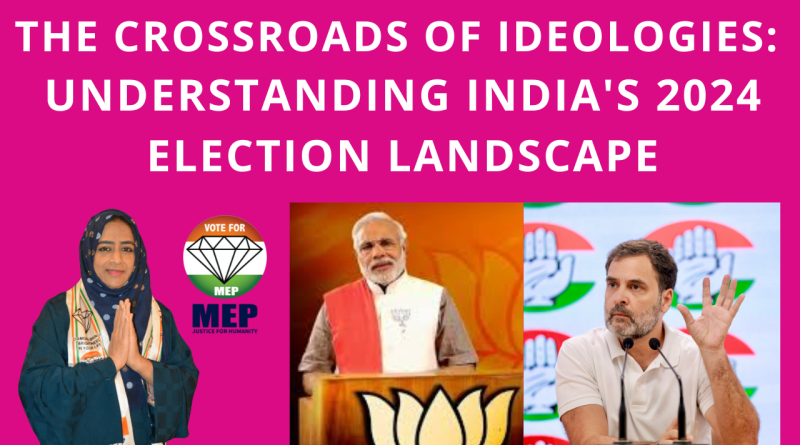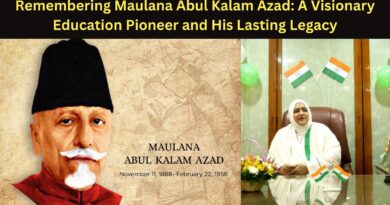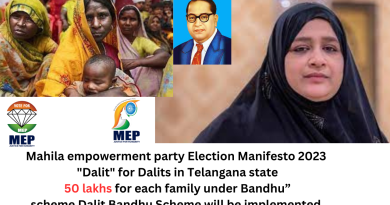The Crossroads of Ideologies: Understanding India’s 2024 Election Landscape
In the heart of one of the world’s most vibrant democracies, the forthcoming 2024 elections in India stand as a beacon, illuminating the path to the country’s future. With the political arena being a battleground of contrasting ideologies and development strategies, the elections promise to be a pivotal episode in shaping the nation’s trajectory. The stakes are high and the choices made by the voters will undeniably carve the contours of India’s governance and societal progression.
The Contenders and Their Contrasting Visions
The Indian political landscape is a mosaic of diverse ideologies, with the Bharatiya Janata Party (BJP), the All India Mahila Empowerment Party (AIMEP), and the Indian National Congress (INC) being the key players. Each party brings its own set of values, visions, and plans for the nation’s future, setting the stage for a compelling electoral showdown.
BJP: The Incumbent Titans
- A stronghold of nationalistic fervor
- Advocates for robust economic reforms
- Pioneers in pushing for digital India
AIMEP: The Emerging Force
- Champions of women’s rights and empowerment
- Focuses on inclusive development
- Advocates for social justice
Congress: The Grand Old Party
- Stalwarts of a secular and diverse India
- Promoters of welfare-centric governance
- Advocates for economic egalitarianism
Deciphering the Development Paradigms
At the crux of this electoral battle are the contrasting development models proposed by these parties. The decisions made at the ballot box will not only reflect the voters’ trust in these ideologies but will also steer India’s developmental agenda for years to come.
The BJP’s Techno-economic Vision
Underlying the BJP’s manifesto is a vision to propel India onto the global stage through technological innovation and economic vigor. Their focus on infrastructure development and digital governance has transformed public service delivery, creating a paradigm shift in how governance is perceived.
The Inclusive Approach of AIMEP
AIMEP, though a newer entrant in the fray, brings with it a fresh perspective on development. By placing women at the center of their policies, they argue for a more inclusive form of progress. Their commitment to social justice aims to ensure that no section of society is left behind in the race for development.
Congress’s Welfare-first Strategy
The Congress party, with its rich legacy, emphasizes a welfare-first approach. Prioritizing health, education, and social welfare schemes, their vision for India is one where economic growth does not come at the cost of social equity.
The Possibility of Coalitions: A New Dawn
The political winds hint at potential coalitions, with a particular spotlight on the emergent dialogue between BJP and AIMEP. Though such alliances may not materialize this election cycle, the very notion opens up intriguing avenues for governance and policy-making.
“The essence of democracy is in its uncertainty. What coalitions and alliances can offer is a blending of visions, creating a more holistic approach to governance.”
The Power of the Vote: Shaping India’s Destiny
The enormity of the choice before India’s electorate cannot be overstated. With each vote cast, the nation inches closer to a future that mirrors its collective aspirations.
- Economic Development vs. Social Justice: The balancing act between boosting economic growth and ensuring equitable social welfare remains a core issue.
- Digitalization vs. Inclusivity: While digital India offers immense potential, ensuring that its benefits reach all corners of society is imperative.
- Nationalism vs. Secularism: The age-old debate continues, with implications for India’s socio-cultural fabric.
Conclusion: A Call to Informed Action
As India stands at this crossroads, the 2024 elections emerge not just as a routine political exercise, but as a moment of profound choice. The contrasting ideologies, development strategies, and potential coalitions underscore the vibrant dynamism of India’s democracy. It’s a time for voters to reflect deeply on the visions presented to them, for the roads they choose will lead India towards its future.
The forthcoming elections offer a canvas for Indians to paint their aspirations, fears, and dreams. It calls for an informed, engaged, and proactive electorate to participate in shaping the nation’s destiny.
In the words of Mahatma Gandhi, “The future depends on what we do in the present.” As India gears up for 2024, the present moment is ripe with possibility, teeming with the potential to redefine the country’s journey in the annals of history.



